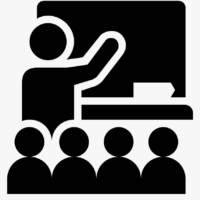What We Do
Building the CMA Brand and Policy

CMA communicates on behalf of its members, builds the brands, and stands up for the credibility of its members.
- Media/Social Media engagement. This is done through supplements, media articles, interviews, social media interactions among others.
- Mark of Quality: This is being worked on and is a collaborative exercise with Technoserve. This entails regular monitoring and evaluation of members products to access the Mark of Quality. We are currently working on the logistics which include endorsements of the Mark of Quality by relevant bodies.
Policy Framework Development
- CMA has grown from lobbying against high wheat import duties and cyclical maize shortages to formulating public policy liberalized grain markets and create level playing fields.
- We endeavor to create more awareness of the safety of GM food and cost benefits of using GM technology.
- We are pushing for the importation of duty-free yellow maize to release at least 3million bags of white maize for human consumption.
- We have constant interactions and continued information sharing with key sector of the government including the Ministry of Agriculture, Livestock and Fisheries (MoALF), Ministry of EAC, Ministry of Finance, Ministry of Health, Ministry of Industrialization to ensure a harmonized approach to commercial activities across the board.
- We are advocating for the removal of Imbalanced Regulations within the milling sector. Regulations that only apply to some is expensive and reduces the competitiveness of the compliant millers moving the market share to the non-compliant millers who operate under the regulatory radar.
- CMA advocates for removal of regulatory overlap by agencies such as Ministry of Health, Agriculture Food Authority (AFA), Kenya Bureau of Standards, County Health Officers increases cost of compliance for millers trying to do the right thing.
- We want to address the inherent misconception that millers are not doing enough to address food safety and work on introduction of regulations across the whole value chain and not only on the finished products.
- We are working with regulatory bodies to ensure due process is followed during monitoring and evaluation to ensure that contaminated food is properly recalled while mitigating reputational damage to the affected brands.
- We have worked hard to build the capacity of our membership. With strong support from our technical partners, we have prioritized food safety and food fortification and worked to ensure that our members receive high quality technical assistance. This collaboration has helped tremendously to increase compliance and provide safe food to our consumers.




